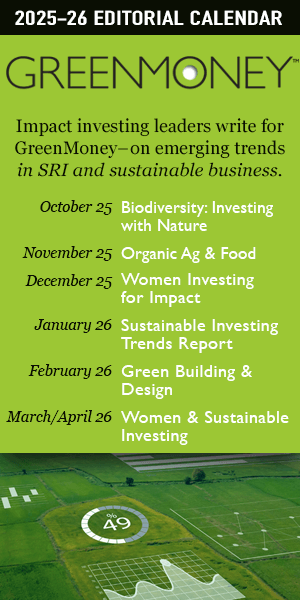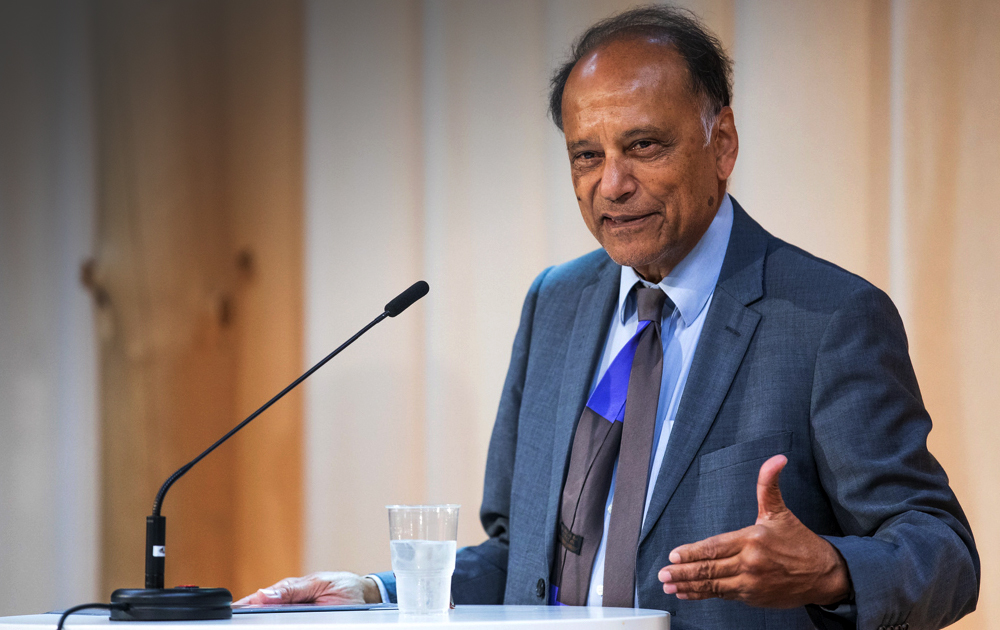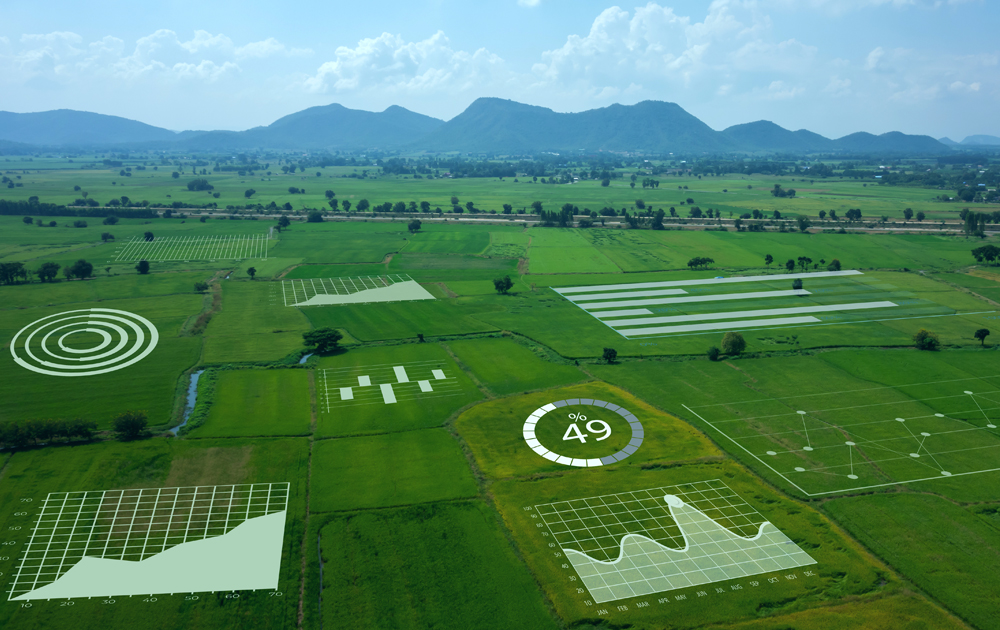A discussion of market gaps in financing, using legacy data sources, and the risk of network biases with Esther Pan Sloane, head of partnerships, policy and communications for the UNCDF.
 In this conversation with Climate & Capital’s co-founder, David Garrison, Esther Pan Sloane shares thoughts on these key points, as part of their Climate Leadership Interviews series:
In this conversation with Climate & Capital’s co-founder, David Garrison, Esther Pan Sloane shares thoughts on these key points, as part of their Climate Leadership Interviews series:
1) The impact of climate is felt systemically. In that light, the problem we’re trying to solve “isn’t only about how energy is generated and distributed in the future; it’s also about how we restructure distribution and society to deliver some of those assets more equitably.”
2) Use the data you already have. “There’s a ton of data that leaders already track, and they may not be thinking about what sustainability elements are attached to existing data.”
3) There are known financing gaps in climate markets that must be addressed. “What I see is a structural problem with the international financial system that money is not flowing through. There just aren’t a lot of active funds there because it’s hard to generate pipeline.”
4) Leaders must develop strong networks. “Unless you deliberately try to expand and diversify your networks, you’re going to end up talking to people who think exactly like you. Even if they don’t look exactly like you, they’ll probably think exactly like you.“
5) Look beyond the leading economies. The work underway by LDCs is important too. “The LDCs are taking action, and there are things we can do to mitigate climate impacts — even if the big players are absent.”
This is an edited transcript.
David Garrison (DG) – What’s the burning opportunity in climate change?
Esther Pan Sloane (EPS) – Investing in a clean energy transition. There’s a massive opportunity here to reshape the economy and also, human life.
Consider the way the global economy is structured: The biggest challenges that we see — poverty, migration, hunger — are not challenges because of a lack of resources. People are not poor because there’s not enough money. They’re poor because the distribution of money in the world is vastly unequal. They’re not hungry because there’s not enough food existing in the world. They’re hungry because they’re not able to access the food that there is, while other people are getting far too much food.
This is why the transition to the climate economy is so urgent: This isn’t only about how energy is generated and distributed in the future; it’s also about how we restructure distribution and society to deliver some of those assets more equitably.
DG – We often talk about longer-term outcomes, like an equitable and sustainable economy, but not about the transition itself. Are there actions that are disproportionately important earlier on in the transition?
EPS – It’s a great point: I do think vision is important. But we also have to look at what will get us there. It’s all well and good to have a utopian vision, but what are you doing tomorrow?
There are so many steps we can take as individuals who control resources — even at a micro level — to get to a future we want. And leaders are starting to think about the investments they’re making in people, systems, and structures to make sure they’re ready to take those steps.
We see this in the climate targets that corporations are setting. They’re ambitious — some more ambitious even than the U.N. Sustainable Development Goals. AB InBev (which is going to be no-emission by 2025), for example, realized they wouldn’t meet internal SDG targets with existing technology, so they started a venture capital arm to help recycle water, chemicals and bottles.
DG – Governments and corporations consider climate risk as part of their planning or diplomatic processes. The rigor and quality of those discussions vary, whether that’s because of board competence, data quality or something else. Does that concern you?
This is all a little bit Wild Westy. “G” is a new field, and I feel a lot like I did when I was a diplomat and all these Russian experts suddenly became Iraq experts. Demand shifts and supply goes to meet demand.
One place that comes out is in the scramble to find indicators. But there’s a ton of data that leaders already track, and they may not be thinking about what sustainability elements are attached to existing data. So, if you lack data, just start with what you’re already tracking as part of your core business — materially relevant things.
You probably know, for example, how much it costs to clean up your factories and dispose of waste. As Tony Milikin, chief supply chain officer at Keurig Dr. Pepper has said, “Waste is relevant.” If there was something leftover in the manufacturing process that Tony had to pay to have picked up but that he could sell to an organic farmer to use for compost, that’s reducing waste.
Is there a danger that, as large pools of capital enter and chase opportunities, we skew the market in certain directions?
The UNCDF faces this all the time: A focus on additionality and development rationale is critical in market intervention. Because if they’re applied incorrectly, you’ll crush free enterprise and massively distort the market.
Before the recent coup in Myanmar, for example, we supported a microfinance lender there. As they were about to launch their product, a development finance institution came in and gave the competing lender a zero-interest loan. That crushed the market — there was just no ability to compete.
Similarly in climate finance, existing structures get overbought. Some funds just have so much money and are looking for a certain kind of deal that you see outsized demand for things like renewable energy credit. Do those then start to water down impact, so that we wake up to find ourselves buying airspace in Denmark to offset our Tesla and not actually impacting places like Fiji or the Bahamas that are at massive climate risk?
There’s also a risk that we’ll see more bad deals when there’s a lot of liquidity sloshing around. The bar starts to lower, not-as-good deals get funded, and more of those fail. The challenge is that there’s the risk that people look at those and say, “Oh, clean water deals are terrible.”
And, of course, there’s a risk that money ignores all the smaller deals that aren’t as flashy or aren’t as easy but that are more impactful. We already see this happening: Finance in emerging markets tends to go to big entities and large projects that are de-risked by development banks; entrepreneurs looking for less than $5 million can’t borrow money.
There’s tons of impact investor money looking for the $50 million streetcar deal in Senegal. Everybody wants the same thing, but nobody’s willing to put in the time and effort and investment to grow a pipeline with deals that aren’t as beautiful.
DG – So how do you ease the selection process to make smaller investments more interesting to institutional investors?
EPS – The UNCDF’s been wrestling with that for the last forty years. What’s needed is a pipeline to move companies from very-promising-but-no-chance-they’ll-ever-get-funded to being attractive to commercial investors. Without that deliberate support, they’ll never make it.
So, four years ago, we created an in-house investment platform that uses grant money to make loans and guarantees to small businesses, along with a blended-finance fund that takes those small businesses and gives them follow-on finance in the form of debt and equity.
Through this, we’ll do technical assistance grants and concessional loans up to a million dollars. The business pays us back, establishes a credit history, and gets another loan from a local bank. When it needs $1 million to $5 million of debt and equity, we pass them to our blended-finance Build Fund.
They’re still risky at this point — they don’t have a tremendous track record — but they’re looking better than they did when we got them, and investors in mezzanine and senior stakes are getting a start-up in emerging markets that has de-risking protection in the form of grant money in the fund. Once the company pays off that portion, they have a really good track record, and they can go into full commercial finance.
This is an excerpt of their extensive interview. Read the complete interview here.
Climate & Capital’s Leadership Interviews is an ongoing series of in-depth discussions with a wide range of leaders in the climate economy. It explores the nuance and tension in leading bold transformations — of individuals, organizations and markets — at the intersection of climate and capital. We hope these conversations give you food for thought and spark conversations as you lead in the climate age. We’re looking forward to hearing from you.
Interview by David Garrison, co-founder of Climate & Capital, where he guides the business, strategy, and brand as publisher. An advisor to leaders on the most difficult challenges of building meaningful brands, he previously founded the Brytemoore Group, a brand consulting firm focused on bold transformations, and has led teams in markets as diverse as healthcare and music, advertising, and management consulting. David speaks on topics ranging from strategic leadership to organizational empathy and writes a regular column for Climate & Capital that shares insights from conversations with leaders. A Canadian living between Maine, NYC, and Toronto, he has an MBA from the Tuck School of Business at Dartmouth. Twitter: @davidcgarrison
Reprinted with permission from Climate & Capital Media, a strategic partner with GreenMoney Journal.


















